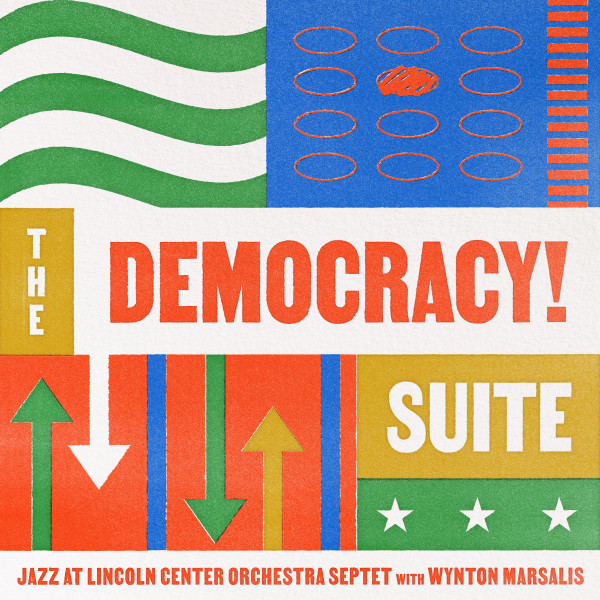Diversity, democracy and jazz: Wynton Marsalis coming to Hanover Theatre
WORCESTER — There’s no doubting that Wynton Marsalis is someone who takes his jazz very seriously.
He is a multiple Grammy Award winning trumpeter and composer who has also won a Pulitzer Prize for music, an educator and writer on the topic, and managing and artistic director of Jazz at Lincoln Center in New York City, where he also leads the JALC Orchestra.
Sometimes he has been involved in jazz arguments that seem to come up quite often since jazz can be a rather contentious subject with disagreements among jazz musicians and aficionados alike.
So is jazz serious, business or can it also be fun?
“Arguing can also be fun,” Marsalis replied good-naturedly during a recent telephone interview.
“It depends on your outlook. Just because you’re serious about something doesn’t mean you can’t have fun,” he said.
“The juxtaposition of ideas — hopefully it’s to come to a consensus … There’s nothing wrong with a little repartee.”
He extended the thought to democracy itself.
“Democracy dies when there is no diversity of opinion,” he said.
So we could say that we’re in for some serious fun when Marsalis will be part of a septet performing at The Hanover Theatre and Conservatory for the Performing Arts at 8 p.m. on July 8 to open the second Summer@MW season presented by Music Worcester.
Marsalis is no stranger to Worcester, having led the Jazz at Lincoln Center Orchestra in Mechanics Hall in 2017 (when it opened Music Worcester’s 2017-18 season) and early in 2020 just before the pandemic struck.
“I love playing in Worcester,” he said.
Family members have also been visitors. Wynton’s brother, saxophonist Branford Marsalis, opened the 2018-19 Music Worcester season at Mechanics Hall with the Branford Marsalis Quartet. The late pianist Ellis Marsalis, known as the patriarch of New Orleans’ “First Family of Jazz” and father of Wynton and Branford, brought the Ellis Marsalis Quartet to Mechanics Hall in 2009.
Wynton Marsalis will be at The Hanover Theatre July 8 with a smaller group than the Lincoln Center Orchestra. The septet, besides Marsalis (trumpet), will include Sean Mason (piano), Carlos Henriquez (bass), Obed Calvaire (drums, tambourine), Chris Crenshaw (trombone), Chris Lewis (alto sax) and Abdias Armenteros (tenor sax, soprano sax).
“I have really great young musicians with me this time,” Marsalis said.
The applying of jazz analogies to democracy gets underlined when you consider the mission statement of Jazz at Lincoln Center includes, “We believe jazz is a metaphor for Democracy. Because jazz is improvisational, it celebrates personal freedom and encourages individual expression.”
Furthermore, one of the works the septet will be performing July 8 is Marsalis’ recent The Democracy! Suite.
Composed by Marsalis during the ongoing COVID-19 crisis, his work has been described as “a swinging and stimulating instrumental rumination on both the issues that have recently dominated our lives, as well as the beauty that could emerge from a collective effort to create a better future.”
Talking about democracy, Marsalis said, “we have a lot of stuff we have to work out. It allows for freedom but also responsibility.” The same is true of a jazz group.
“The jazz band works best when participation is shaped by intelligent communication.”
But equally, “to hear people playing swing is fun,” Marsalis said. “We’re not giving lectures. We just play the music.”
The program will also include other septet music. “I have a lot of septet music,” he said.
He hopes the audience will enjoy “the range of music, the interplay … interplay, swinging, improvising.”
Marsalis has said “swing is about finding people and staying found.” He said that during a six-part Harvard University lecture series, covering a range of topics including jazz, what it means to be American, and the importance of cultural literacy and the arts in the liberal arts education.
He was born in New Orleans, the second of Ellis and Dolores Marsalis’ six sons. At age 8, he performed traditional New Orleans music in the Fairview Baptist Church band, led by renowned banjoist Danny Barker. He began studying the trumpet seriously at age 12, and gained experience as a young musician in local marching bands, jazz and funk bands, and classical youth orchestras.
However, asked if, given his family background, he was destined to become a musician, Marsalis replied “No.”
He noted that “My father actually struggled when we were growing up. We had a couple of good years in the early ’70s, but in general the life was not glamor.”
The young Wynton Marsalis excelled at jazz and classical music, and entered The Juilliard School in New York City in 1979 to study classical trumpet.
“I picked up classical music and loved it,” he said.
But he indicated there was no doubt about what kind of a musician — if he was to become a musician — Marsalis intended to be.
“I was always in the environment of jazz … literally from birth, I was always around the playing,” he said.
“My father was not against any music, but I was born and raised in jazz. There was no question about what I was going to do.”
He said “I’ve had a good life listening,” to composers ranging from Mingus to Bach.
Classical music has had its influence, including in composing jazz suites.
“I’ve been blessed to write music that a symphonic style of orchestra has a chance of playing,” he said.
However, “At a certain point I stopped playing classical music because I didn’t have the time. I focused on jazz because that was my identity.”
Not long after entering Juilliard, Marsalis had the opportunity to sit in with Art Blakey and the Jazz Messengers. In the summer of 1980, he joined Blakey’s band.
But Marsalis didn’t really abandon classical music. He made his recording debut as a leader in 1982 and has since produced a catalogue of more than 40 jazz and classical recordings which have won him nine Grammy awards. In 1983, and again in 1984, he won both classical and jazz Grammy awards in the same year, the first and only artist to do so.
He has been artistic director of Jazz at Lincoln Center since 1987, introducing innovative programs and educational outreach while keeping the orchestra busy.
Although he composed during the pandemic and the Jazz at Lincoln Center Orchestra didn’t tour, Marsalis said he did go out and play with a smaller lineup of musicians, including the septet.
“We toured a lot during the entire period. We stayed out there. Whenever we could tour we would go out with a small group,” he said.
With his septet Marsalis is still the boss.
“I’m the boss. But when you start your solo, you’re the boss,” he said of this septet’s democratic jazz structure.
“When Chris Lewis starts his solo, it’s his solo. Nobody’s gonna stop him. We want people to be individualistic and express themselves.”
In terms of Marsalis’ ongoing self-expression he said, “I really want to write some opera.”
Jazz trumpeter and composer Terence Blanchard’s opera “Fire Shut Up in My Bones” with a libretto by Kasi Lemmons had its world premiere opening the Metropolitan Opera in New York City’s 2021-22 season. It was the first live, in-person performance there since the pandemic started. It is also the first work by a Black composer in the 138-year history of the Met.
“Terence’s opera at the Met, I think it was really beautiful. I’m inspired by him,” Marsalis said.
As for Jazz at Lincoln Center, “We’re hanging in there. We stayed together in the pandemic. We try to deliver our mission. We remain dedicated,” Marsalis said.
At 60, he’s also aware of a certain ticking of the clock. It’s a serious matter, of course, but he’ll also probably have some fun with it.
“We have a lot of young musicians. I’ll embrace that change … You get near that age. You go through a different cycle of life. For me, it’s never been difficult to embrace the cycle of changes that may take place,” he said.
The 2022 Summer@MW season will also feature Tony DeSare and his “Sinatra & Beyond” program at Mechanics Hall on July 14, and Rhiannon Giddens leading the Silkroad Ensemble at Indian Ranch in Webster on July 27.
There will be a free concert day on Sunday, Aug. 14, in Cristoforo Colombo Park (East Park), with programming and artists being announced in early July. For more information, visit www.musicworcester.org
Music Worcester presents Wynton Marsalis
When: 8 p.m. July 8
Where: The Hanover Theatre and Conservatory for the Performing Arts, 2 Southbridge St., Worcester
How much: $39, $55, $75 and $85 depending on seat location. (877) 571-7469; www.thehanovertheatre.org
by Richard Duckette
Source: Telegram & Gazette


